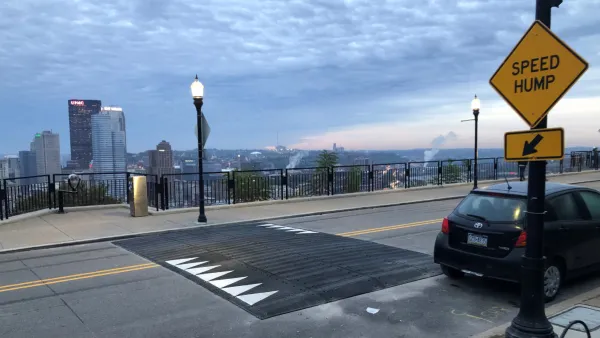At least some of a remarkable 49 percent drop in crime in a rough Pittsburgh is attributed to a new nonprofit-sponsored program designed to put slumlords out of business and get rid of their problem tenants.

Neighborhoods don't produce crime. People do.
That's the philosophy behind a "slumlord buyout" program that has been underway in the East Liberty neighborhood of Pittsburgh since 2008. Between 2008 and 2012, taking advantage of recessionary prices, East Liberty Development Inc., targeted 200 units that it considered problematic. Law-abiding residents had to cope with "a steady drumbeat of nonsense. Not just gunfire but street fights, people screaming, hookers propositioning your dinner guests," Eric Jester, formerly of ELDI, told the Pittsburgh Post-Gazette.
Finding that police could respond to incidents but not to the overall culture of the neighborhood, ELDI, a community development nonprofit, purchased the units from landlords who were too tolerant of sketchy and illegal behavior by their tenants. Previously, the city had hoped to combat crime by welcoming new retail establishments, such as Whole Foods. But, by forcing out a small number of bad apples the entire neighborhood has benefited.
The program abides by the "hot spot" theory of crime, which—the "hot-spot theory" suggests that are that three percent of locations were responsible for 50 percent of police calls. ELDI worked with researchers at nearby Carnegie-Mellon University to identify problematic properties. The result: crime went down 49 percent during the four years of the buyout program.
FULL STORY: How did East Liberty become safer? Buying out homes that housed criminals

Planetizen Federal Action Tracker
A weekly monitor of how Trump’s orders and actions are impacting planners and planning in America.

Map: Where Senate Republicans Want to Sell Your Public Lands
For public land advocates, the Senate Republicans’ proposal to sell millions of acres of public land in the West is “the biggest fight of their careers.”

Restaurant Patios Were a Pandemic Win — Why Were They so Hard to Keep?
Social distancing requirements and changes in travel patterns prompted cities to pilot new uses for street and sidewalk space. Then it got complicated.

Platform Pilsner: Vancouver Transit Agency Releases... a Beer?
TransLink will receive a portion of every sale of the four-pack.

Toronto Weighs Cheaper Transit, Parking Hikes for Major Events
Special event rates would take effect during large festivals, sports games and concerts to ‘discourage driving, manage congestion and free up space for transit.”

Berlin to Consider Car-Free Zone Larger Than Manhattan
The area bound by the 22-mile Ringbahn would still allow 12 uses of a private automobile per year per person, and several other exemptions.
Urban Design for Planners 1: Software Tools
This six-course series explores essential urban design concepts using open source software and equips planners with the tools they need to participate fully in the urban design process.
Planning for Universal Design
Learn the tools for implementing Universal Design in planning regulations.
Heyer Gruel & Associates PA
JM Goldson LLC
Custer County Colorado
City of Camden Redevelopment Agency
City of Astoria
Transportation Research & Education Center (TREC) at Portland State University
Camden Redevelopment Agency
City of Claremont
Municipality of Princeton (NJ)





























